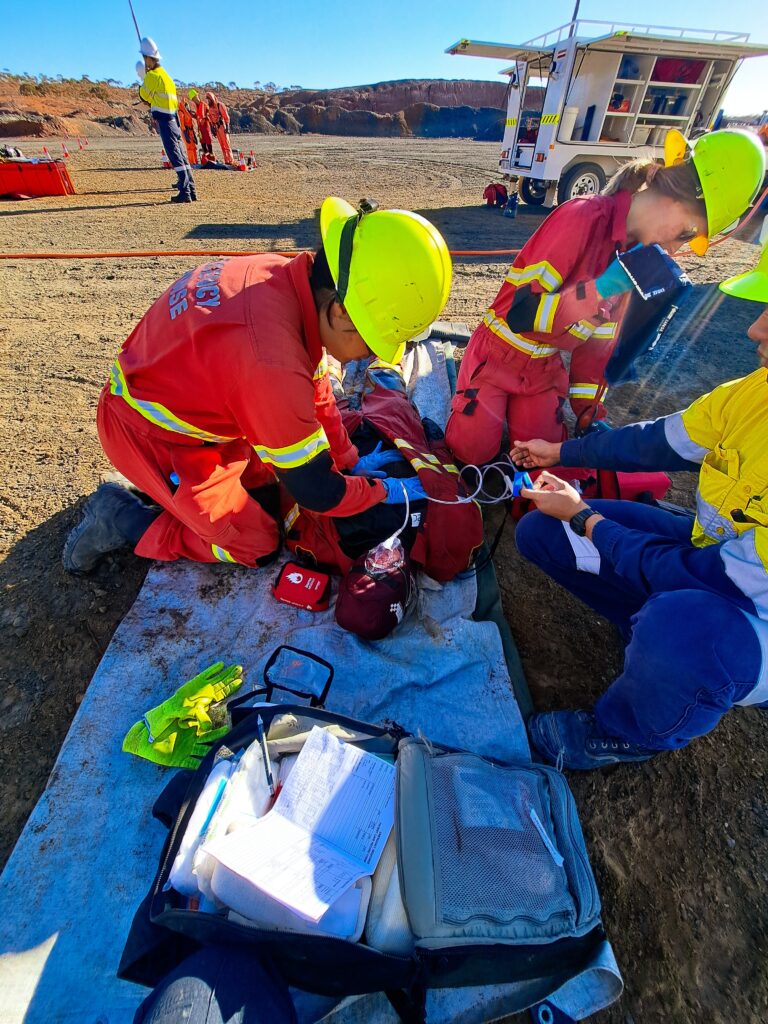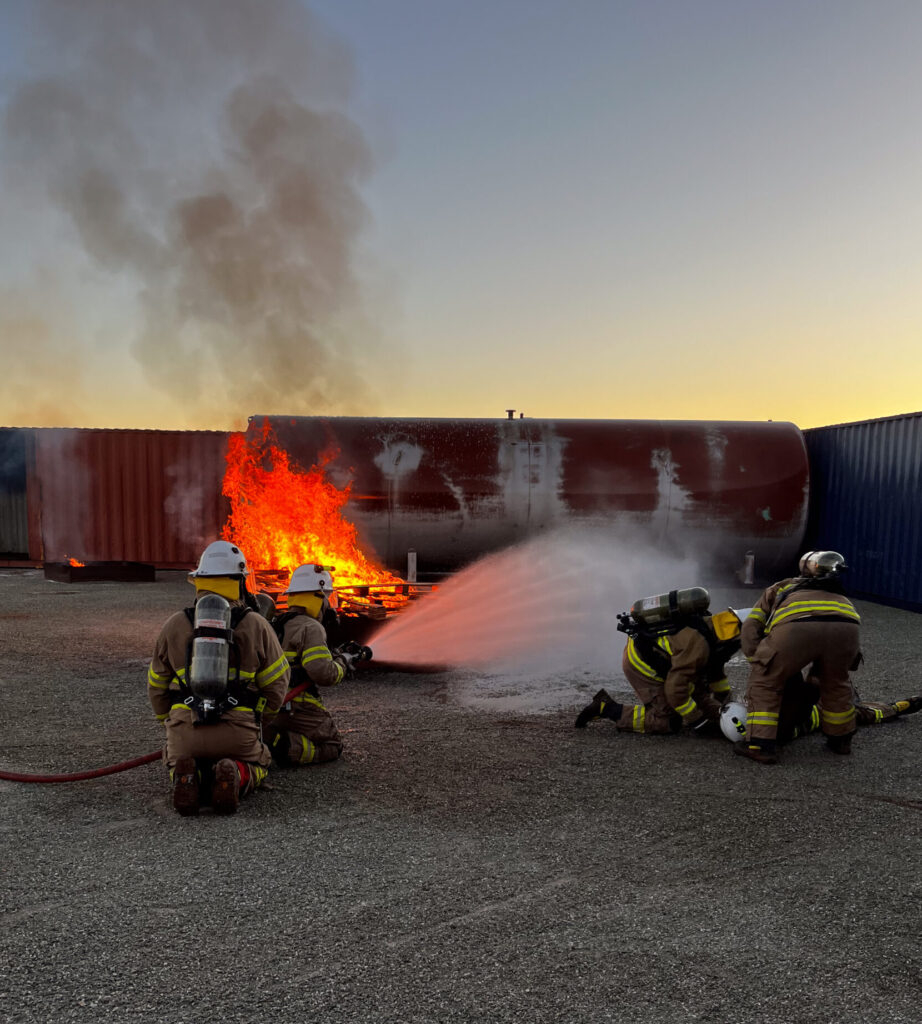Training Plan
Course Information
Course Length: 7 Days
ARG’s Initial Response course is specifically tailored to equip your team with the essential skills needed to manage worksite incidents effectively. Participants will gain a thorough understanding of various firefighting scenarios, while also learning about industry best practices and the critical care of emergency equipment. This foundational training ensures that your team is prepared to respond swiftly and effectively to emergencies in high risk environments, protecting both people and assets.
The course goes beyond basic response techniques by emphasising the importance of working as a member of a Mine Rescue Team under limited supervision. Participants will gain comprehensive training in emergency response, combining essential fire and rescue skills with nationally recognised first aid competencies. This course equips individuals with procedural knowledge and practical experience to continuously monitor fire conditions, recognise appropriate extinguishing actions, operate firefighting equipment effectively, and coordinate team-based responses to incidents on the ground.
Through interactive scenarios and group discussions, participants will learn how to safely attack fires, ventilate structures, and manage equipment under pressure. The training includes the use of open-circuit breathing apparatus (PUAFIR207), maintenance and testing of emergency response equipment (PUAEQU001), and team-based fire suppression techniques (RIIERR201E), all within the framework of responding to work site incidents (RIIERR301E).
Additionally, participants will be trained in the prevention of injury (PUAFIR210) and receive nationally recognised certification in Provide Cardiopulmonary Resuscitation (HLTAID009), Provide First Aid (HLTAID011), and Provide Advanced First Aid (HLTAID014), enabling them to deliver immediate care during critical incidents.
Each lesson is crafted to get your team incident ready, from learning to perform safe firefighting tactics to delivering first aid and responding to on-scene emergencies. By the end of the course your team will possess the skill, knowledge, and coordination to manage a wide range of emergencies, protecting people and safeguarding valuable assets.
Training and Assessment delivered under the auspices and in partnership arrangement on behalf of Health Security & Education Pty Ltd, RTO 40907.


Course Outcomes
Upon successful completion of this course, participants will be equipped with the skills and knowledge to respond effectively to a broad range of emergency situations in the workplace. They will be capable of conducting initial assessments, initiating safe and efficient incident responses, and working cohesively as part of a fire team (RIIERR201E, RIIERR301E). Learners will understand how to observe and interpret fire behaviour, use appropriate extinguishing methods, and apply ventilation techniques while maintaining a clear focus on site safety and the protection of life and property. Participants will also gain the skills required to prepare, maintain and test essential emergency response equipment (PUAEQU001), ensuring operational readiness.
Participants will develop practical capabilities in the use of open-circuit breathing apparatus in hazardous environments (PUAFIR207), and implement strategies to prevent personal injury during emergency operations (PUAFIR210). In addition, the course includes nationally recognised training in Provide Cardiopulmonary Resuscitation (HLTAID009), Provide First Aid (HLTAID011), and Provide Advanced First Aid (HLTAID014), enabling participants to respond confidently to a range of medical emergencies—from administering CPR to managing unconscious casualties and treating severe trauma until professional help arrives. These outcomes ensure that each participant not only contributes to fire team operations but also plays a critical role in the overall health and safety of the worksite.
Units of Competency
Upon successful completion of the Initial Response course, each student will be awarded a nationally recognised statement of attainment. This certification acknowledges the achievement of key competencies essential for effective emergency response and rescue operations. Additionally, students have the option to roll these units of competency into the RII30719 Certificate III in Emergency Response and Rescue, providing a pathway for further professional development and certification.
Students who attend and successfully meet all the course assessment requirements will receive a statement of attainment for the following Units of Competency:
- HLTAID009 Provide Cardiopulmonary Resuscitation (CPR)
- HLTAID011 Provide First Aid
- HLTAID014 Provide Advanced First Aid
- PUAFIR210 Prevent Injury
- PUAFIR207 Operate Breathing Apparatus Open Circuit *
- RIIERR301E Respond to Work Site Incidents
- PUAEQU001 Prepare, Maintain and Test Response Equipment *
- RIIERR201E Conduct Fire Team Operations
*PUAFIR210 Prevent Injury is a pre-requisite for these units.
Pre-Requisites
- PUAFIR210 Prevent Injury is a pre-requisite but will be delivered as part of the course.
Physical Fitness: Adequate physical fitness to participate in physically demanding activities, such as operating firefighting equipment, wearing breathing apparatus, and conducting rescue operations.
Experience in Emergency Response: A background in emergency response, such as experience in a emergency service officer role or involvement in emergency drills is beneficial, to ensure trainees can apply advanced techniques effectively.
